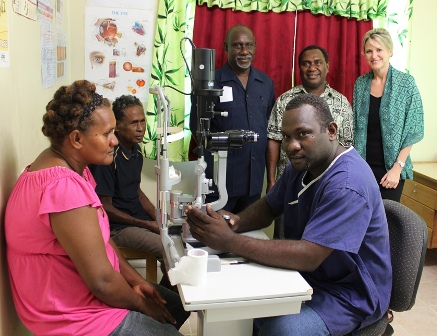24 July 2013
Australia commits to treating avoidable blindness in the Pacific
Minister for International Development Melissa Parke today announced that Australia will help support 8,000 operations to restore the sight of people in the Pacific.
“This is an area where Australian aid is making a real difference to people’s lives and to the prosperity and wellbeing of communities in our region,” Minister Parke said.
The procedures will be delivered through the third phase of the Pacific Regional Blindness Prevention Program – a partnership with the New Zealand Aid Programme and Fred Hollows Foundation New Zealand.
The program will provide immediate and important benefits to those who suffer blindness, as well as long-term social and economic gains for Pacific countries.
“In developing countries, the economic benefits of eliminating avoidable blindness and visual impairment outweigh the costs by a factor of four to one,” Minister Parke said.
Australia has committed A$2.5 million over the next three years for the avoidable blindness program. This will allow more than 30,000 patient consultations and 8,000 sight-restoring operations to take place across the Pacific.
Fifty-six nurses and 16 community health workers will also be trained in eye care through the Fiji-based Pacific Eye Institute.
Solomon Islanders make up the largest number of students and graduates from the Pacific Eye Institute. Four ophthalmologists and 19 eye nurses have already been trained, and two more nurses are set to graduate this year.

Eye nurse Kelvin Jack with a patient at the Kukum Eye Clinic in Honiara.
As a result, more than 500 sight-restoring surgeries are expected to be performed in Solomon Islands during 2013.
“In addition to restoring vision and changing individual lives, there are important social benefits that come from these surgeries,” Ms Parke said.
“The carers of the blind and partially blind, for instance, are mostly women and girls. Following a sight-restoring procedure, the carers also become liberated to go to school or out to work.”
